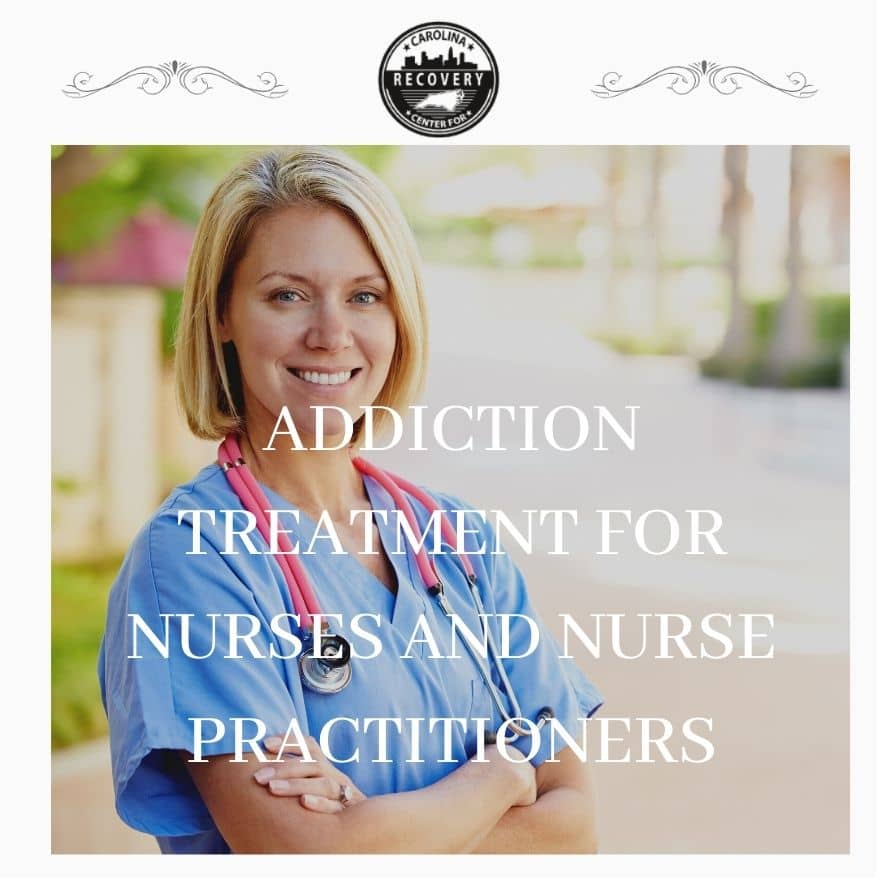Addiction Treatment for Nurses and Nurse Practitioners

Medically Verified: 2/1/24
Medical Reviewer
Chief Editor

All of the information on this page has been reviewed and verified by a certified addiction professional.
Substance abuse and addiction do not discriminate. They can affect anyone regardless of their education level, background, and career, including healthcare providers, doctors, nurses, and nurse practitioners. Unfortunately, there is still a lot of stigma surrounding substance abuse and mental health in the healthcare industry. Nurses may fear losing their jobs or having their licenses revoked if they admit to having a problem with drugs and alcohol.
A specialized drug and alcohol rehab program can provide uniquely-tailored care to nurses and nurse practitioners who are struggling with addiction. Treatment is delivered in a highly-focused and discreet manner, allowing nurses to achieve recovery in a confidential and private setting.
Substance Abuse in Nurses: Why Nurses Turn to Drugs and Alcohol
Nursing is not an easy profession. And, in the wake of the COVID-19 pandemic, nurses are more overworked and stressed out than ever. Being on the front lines of the medical field, nurses are constantly exposed to traumatic injuries (and the stories behind those injuries), terminal illness, chronic diagnosis, and loss of life. These work-related factors combined with long hours, demanding shifts, short-staffs, and unsafe nurse-to-patient staffing ratios make it clear that nurses have been put under an exceptional amount of stress and pressure over the last few years.
Nurses are heroes, but they are human, too. That means they are not exempt from struggling with the lingering effects of trauma, an existing mental health condition, or a drug or alcohol problem. In fact, many nurses report using drugs and alcohol to cope with work-related stressors. Studies show that up to 18% of nurses show signs of substance abuse problems and 6.6% have a substance use disorder.[1]
While nurses and nurse practitioners may be hesitant to ask for help for addiction, there are accredited drug and alcohol rehab programs available for nurses struggling with addiction.
Risk Factors for Substance Abuse Among Nurses
Certain risk factors, such as trauma, mental illness, or family history of addiction can increase the risk of substance use disorder in all types of individuals. However, certain work-related stressors are unique to those in the nursing field. Stress, whether at home or at work, can be a major risk factor for addiction.
Nurses are susceptible to a lot of workplace stressors, including:[2]
- High-intensity work environment
- Responsibility for patients’ lives and wellbeing
- Staffing shortages
- Having too many patients at once
- Pressure to work overcome
- Watching firsthand the effects of illnesses such as COVID-19
Nurses and nurse practitioners who work in the emergency room (ER) or intensive care unit (ICU) may also be exposed to frequent death, unpredictable shifts, and emotionally heavy work demands. All of these factors can make nurses susceptible to substance abuse and addiction.
Exclusive Drug and Alcohol Rehab for Nurses and Nurse Practitioners
Some addiction treatment centers specialize in substance abuse recovery for healthcare professionals. These programs are sensitive to the unique needs of professionals in the nursing industry. Qualities one may find at a rehab center for nurses include:
- Private, confidential treatment – When one’s job or nursing license is on the line, privacy and confidentiality are important. Professionals rehab programs offer discrete and confidential care.
- Highly-focused care – Taking a lot of time off of work is unrealistic for many medical professionals, so rehab centers can provide short-term, highly focused care that allows patients to recover quickly and comprehensively.
- Collaboration with the workplace – Nurses may need to coordinate their care with their work as part of FMLA or a diversion program. Executive rehab centers can coordinate this on the patients’ behalf.
- Stress management – It’s important for nurses in addiction treatment to learn how to manage on-the-job stress so they can stay sober in the future.
Those who attend a specialized recovery program for nursing can achieve recovery without sacrificing their careers.
Find an Addiction Rehab for Nurses and Nurse Practitioners Today
At Carolina Center for Recovery, we take privacy concerns seriously and understand the needs of nurses who are struggling with addiction. Our comprehensive dual diagnosis treatment program is designed to help clients solve the root causes of their substance abuse so they can truly overcome their addiction and be able to live a sober, fulfilling life.
If you or someone you know is a healthcare professional struggling with drug or alcohol addiction, please reach out for help today. Getting help can improve the person’s own health as well as the safety of his or her patients. Don’t wait any longer. Call now to speak with one of our trusted admissions specialists.
References:

